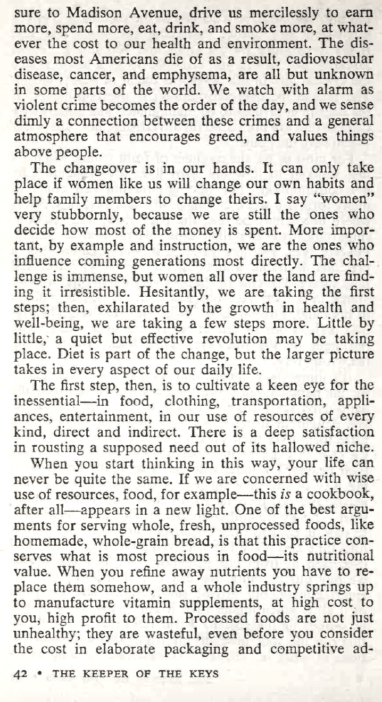One of the central questions of the counterculture food movement was: What was the role of women in this movement? Traditionally, women were seen as the primary homemaker, responsible for cooking meals and working in the kitchen.
Some in the counterculture — influenced by women’s liberation — sought to create a more egalitarian kitchen, in which men and women would both share the labor of preparing food. Others tried to imagine how women could continue to do the work of preparing food, but through forms of labor that would be satisfying rather than alienating.
In the best-selling vegetarian cookbook Laurel’s Kitchen, co-author Carol Flinders followed the latter tack, suggesting how the kitchen could be, for women, a place of fulfillment and spiritual growth. In the introduction to the cookbook, Flinders relates how, through Laurel Robertson, she was drawn into the daily practice of breadmaking and, more generally, into a more spiritual approach to cooking.
Flinders suggests that, by taking pride in the work they do every day, women can reinvent what it means to work in the kitchen. Whereas some feminists saw the cooking done by women as unpaid and often exploitative household labor, Flinders reframed such work as the centerpiece of a fulfilled life; housework need not be tedious if it became intentional. Moreover, she argued, since women were the “keeper of the keys” to the household, they held the power to usher in large, transformational changes — for example, by turning American culture away from a meat-centered diet and towards a vegetarian one.
Laurel’s Kitchen was immensely popular, selling over a million copies according to the back cover of its 1986 edition.
